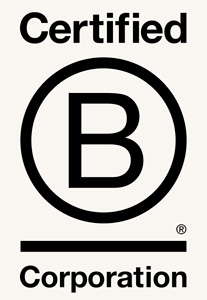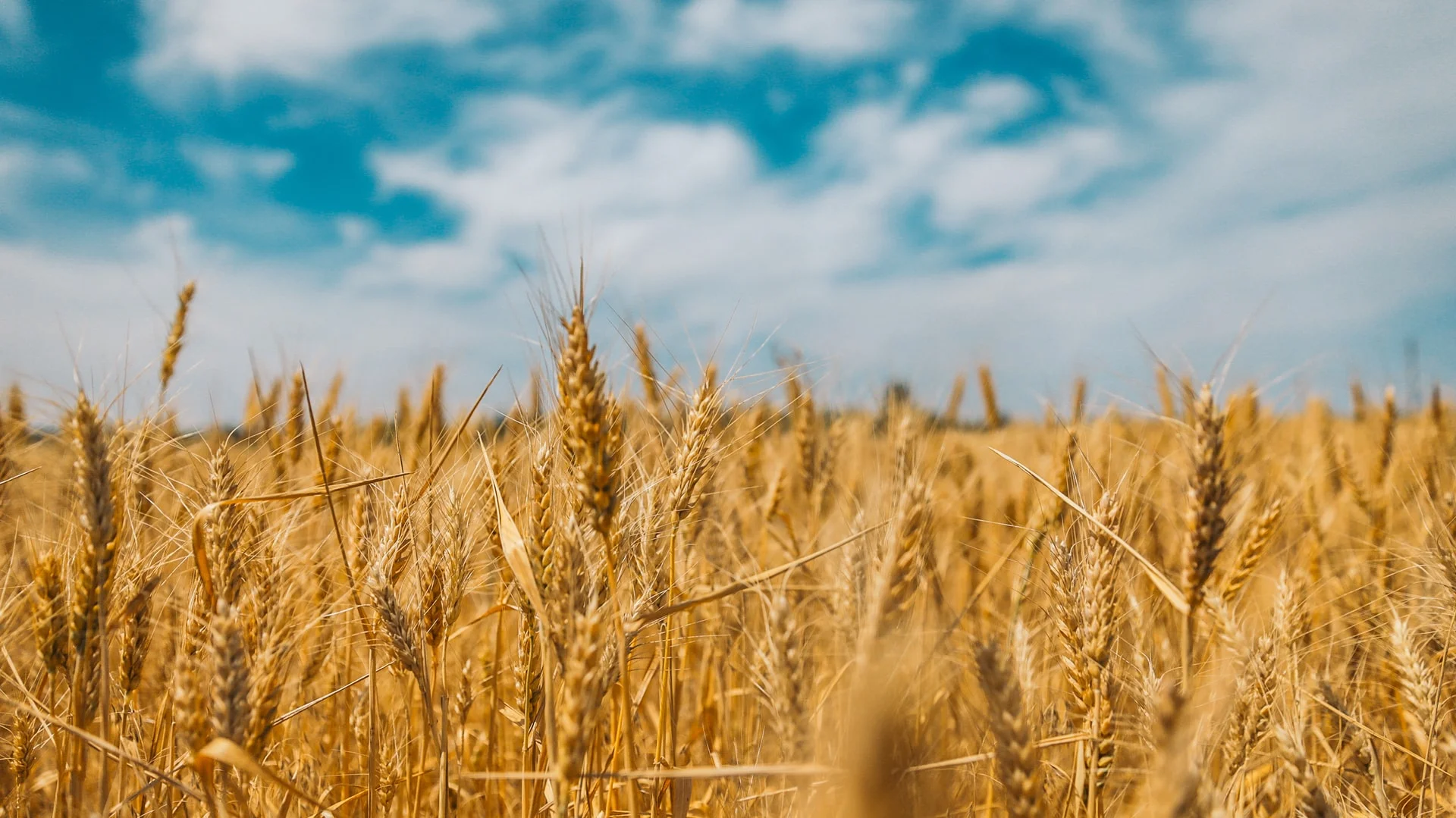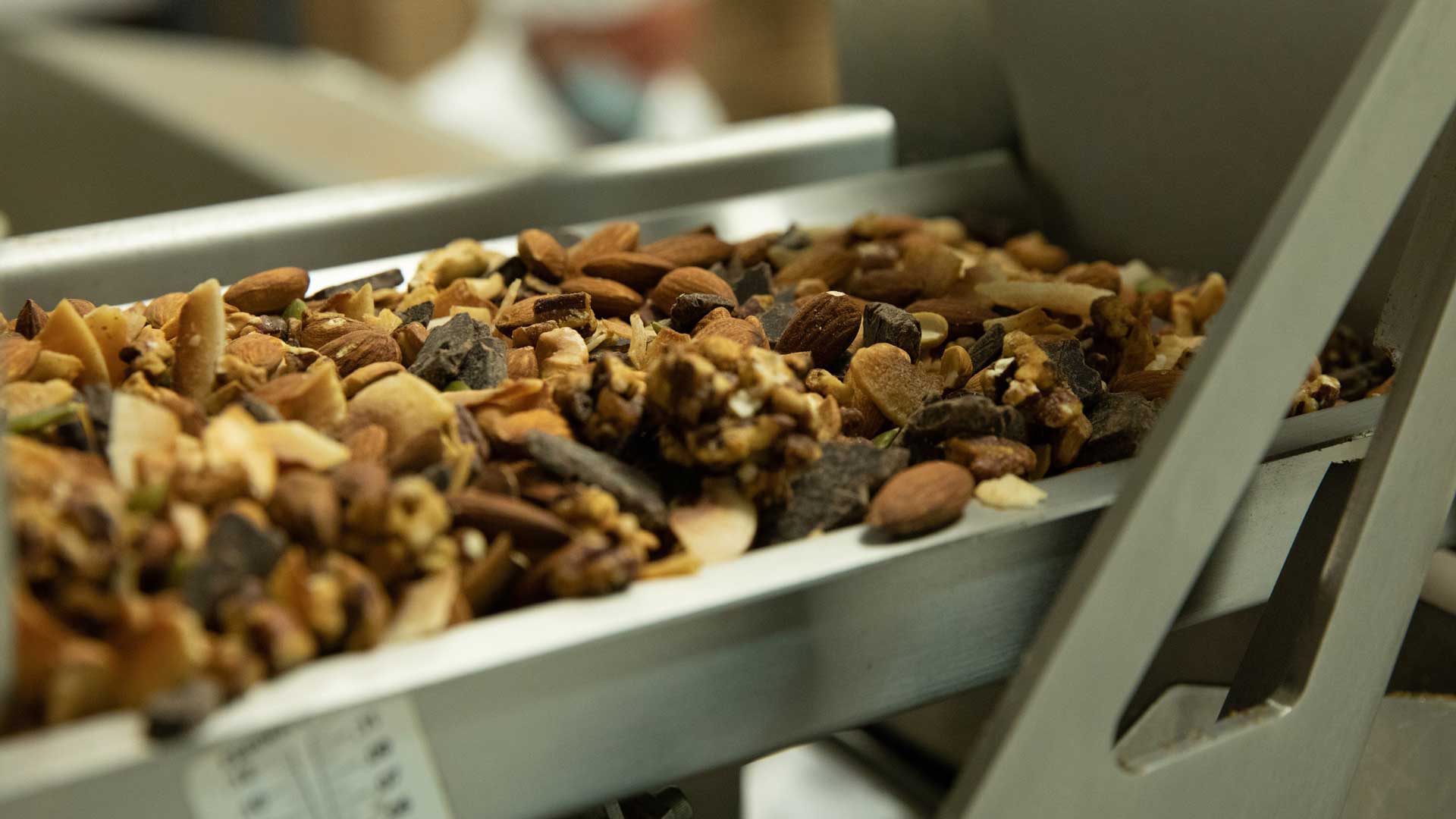A Responsible B Corp Company
B Corp certified
‘Honour the Seed’ is a belief that guides La Fourmi in all things: the seed represents the start and possibility, how you honour it defines the quality of its outcome, be it the ingredients in a product, the seed of an idea for a new blend or business model, and also the seed of our life, our children, whom we must share the knowledge of land-loving with so they carry this sacred respect on for generations to come.
La Fourmi is proud to be recognized with the highest standards of certification in progressive sustainable practices and eco-conscientiousness. We are committed to empowering the growing network striving to build a culture of care and respect for the preservation and restoration of nature’s vitality.
Help us cultivate a passion for sustainable progress.

Beyond simply addressing environmental impact, the B Corp certification encompasses 5 major pillars in which the company is heavily invested.
Governance
How the company is managed and how management exercises power.
Employees
Employee involvement, work appreciation, promoting employee well-being and shared values.
Community
The company’s impact on society and the local, national and even international economic levels.
Environment
The company’s carbon footprint on the environment at every step.
Customers
Customer involvement, transparent communication, high-quality products, fair pricing and shared values.
A Responsible B Corp Company
B Corp certified
‘Honour the Seed’ is a belief that guides La Fourmi in all things: the seed represents the start and possibility, how you honour it defines the quality of its outcome, be it the ingredients in a product, the seed of an idea for a new blend or business model, and also the seed of our life, our children, whom we must share the knowledge of land-loving with so they carry this sacred respect on for generations to come.
La Fourmi is proud to be recognized with the highest standards of certification in progressive sustainable practices and eco-conscientiousness. We are committed to empowering the growing network striving to build a culture of care and respect for the preservation and restoration of nature’s vitality.
Help us cultivate a passion for sustainable progress.

Beyond simply addressing environmental impact, the B Corp certification encompasses 5 major pillars in which the company is heavily invested.
Governance
How the company is managed and how management exercises power.
Employees
Employee involvement, work appreciation, promoting employee well-being and shared values.
Community
The company’s impact on society and the local, national and even international economic levels.
Environment
The company’s carbon footprint on the environment at every step.
Customers
Customer involvement, transparent communication, high-quality products, fair pricing and shared values.
Focus on the environment
Nature does the finest work for us if we allow it, listen to the earth and support it.
Each of us needs to help protect its vital reciprocity, adapt and promote positive change together.

Focus on the environment
Nature does the finest work for us if we allow it, listen to the earth and support it.
Each of us needs to help protect its vital reciprocity, adapt and promote positive change together.
The most eco-friendly packaging!
Sustainable sourcing
By sourcing fair trade, non-GMO and organic ingredients mostly from Quebec, La Fourmi considerably reduces its environmental impact, while offering you high-quality ingredients in all its products.
The greenest process
La Fourmi’s production process stands out as the exception. We produce on demand, recycle our losses, and boast a very small environmental footprint when compared to others.
The most eco-friendly packaging!
Sustainable sourcing
By sourcing fair trade, non-GMO and organic ingredients mostly from Quebec, La Fourmi considerably reduces its environmental impact, while offering you high-quality ingredients in all its products.
The greenest process
La Fourmi’s production process stands out as the exception. We produce on demand, recycle our losses, and boast a very small environmental footprint when compared to others.
Wiser in a B Corp building
We operate in a B Corp-certified building. We’ve also taken extra measures to reduce our energy and water consumption as well as eliminate environmentally harmful waste, like opting for biodegradable gloves and cleaners.
Smarter transport and shipping
Plant-based products
By using mostly organic and non-GMO plant-based ingredients, our products are a great nutritional option with minimal environmental impact.
Wiser in a B Corp building
We operate in a B Corp-certified building. We’ve also taken extra measures to reduce our energy and water consumption as well as eliminate environmentally harmful waste, like opting for biodegradable gloves and cleaners.
Smarter transport and shipping
Plant-based products
By using mostly organic and non-GMO plant-based ingredients, our products are a great nutritional option with minimal environmental impact.
90% Quebec partners
80% Quebec-sourced ingredients in our Grand Granola line
11 ingredients from Quebec

90% Quebec partners
80% Quebec-sourced ingredients in our Grand Granola line
11 ingredients from Quebec
Free-standing plastic bags are the most environmentally friendly!
La Fourmi has always sought to reduce its carbon footprint as much as possible. Furthermore, we regularly receive requests to offer ever more eco-friendly packaging.
In an attempt to meet these goals, we conducted a study with the help of the environmental life cycle assessment firm CT Consultant.
We made three important observations, some of which may be surprising and far from “Green Washing”:
- Greenhouse gases (GHG) are the biggest threat to our environment, according to scientific consensus.
- Although packaging is a major concern for the general public, it actually represents less than 5% of a food company’s GHG emissions, compared to about 80% for agriculture. So, by choosing local, mostly organic, ingredients, we are guaranteed to reduce our impact considerably.
- Lastly, given the state of recycling in Quebec, the free-standing multi-layered plastic bags we use remain the best option available. Even more so than compostable bags!
It takes into account different elements of the life cycle analysis:
- Food preservation (taste and integrity)
- Life cycle (production, transportation, recycling or disposal…)
- Cost (doubling the selling price of our products is not an option)
Read on for more information.
Metal boxes are not especially suited to granola. Their production takes a lot more energy and materials that are harder and more toxic to extract. They are also heavier, which makes transportation more harmful.
Ultimately, this solution would result in 600% more GHG emissions than our current bags*.
Similarly, an HDPE bin would result in 376% more GHG emissions*.
People often think of a cardboard box as being more environmentally friendly, when in fact, this solution inevitably requires secondary packaging to properly preserve the food.
That means a lot more material to produce and recycle. Especially when we know that only 25% of plastic in Quebec is recycled and that almost all the rest is sent to landfills (source in French). According to scientists, this option is 300% more harmful in terms of GHGs than our current bags*.
Who would have thought that compostable bags are one of the most hazardous options for the planet at this time?
Éco Entreprises Québec conducted a study with environmental and organic management consultants from SOLINOV and found that, given the current state of recycling in Quebec, plastic bags, whether recyclable or not, pose less of a risk than compostable packaging in terms of GHG emissions*.
The same is true for biodegradable packaging. Biodegradable packaging not only generates more GHGs when it decomposes, but it also fails to adequately preserve the product. The environmental impact of food waste is much greater than that of our plastic packaging.
And finally, this packaging is much more expensive and wouldn’t allow us to maintain our current selling prices.
Bulk can be a great alternative. But producing reusable packaging (glass, metal or plastic) generates more GHGs than a bag like ours. To achieve a positive trade-off and for bulk to become an effective solution, we need to reuse the container a significant number of times and avoid food waste caused by poor preservation or transportation losses.
That’s why our solution is to choose packaging that offers the optimal balance between strength, shelf life and the amount of plastic used. These bags only weigh between 11 and 15 grams and are recyclable.
Even if they are not recycled, which happens in most cases, they still do not generate as many GHG emissions as compostable, biodegradable or the other types of packaging mentioned above.
By providing the thinnest possible large-format bags, our strong airtight jars, and bulk in many specialty stores, we are taking the most effective approach possible to minimizing our environmental impact!
Naturally, La Fourmi is committed to keeping an eye on future developments and finding ever better eco-friendly solutions.
Sources:
- PTIS (2018). A Holistic View of the Role of Flexible Packaging in a Sustainable World. April 2018. https://www.flexpack.org/resources/sustainability-resources
- Éco Entreprises Québec (2021). Emballages biodégradables et compostables au Québec – Rapport sur l’état de la situation. https://ecoconception.eeq.ca/en-ca/reportpackaging
- Schmidt, G., Mendoza, F. & A., Manuel, J., A. Azapagic. (2018). Environmental impacts of takeaway food containers. Journal of Cleaner Production. 211. 417-427.
Free-standing plastic bags are the most environmentally friendly!
La Fourmi has always sought to reduce its carbon footprint as much as possible. Furthermore, we regularly receive requests to offer ever more eco-friendly packaging.
In an attempt to meet these goals, we conducted a study with the help of the environmental life cycle assessment firm CT Consultant.
We made three important observations, some of which may be surprising and far from “Green Washing”:
- Greenhouse gases (GHG) are the biggest threat to our environment, according to scientific consensus.
- Although packaging is a major concern for the general public, it actually represents less than 5% of a food company’s GHG emissions, compared to about 80% for agriculture. So, by choosing local, mostly organic, ingredients, we are guaranteed to reduce our impact considerably.
- Lastly, given the state of recycling in Quebec, the free-standing multi-layered plastic bags we use remain the best option available. Even more so than compostable bags!
It takes into account different elements of the life cycle analysis:
- Food preservation (taste and integrity)
- Life cycle (production, transportation, recycling or disposal…)
- Cost (doubling the selling price of our products is not an option)
Read on for more information.
Metal boxes are not especially suited to granola. Their production takes a lot more energy and materials that are harder and more toxic to extract. They are also heavier, which makes transportation more harmful.
Ultimately, this solution would result in 600% more GHG emissions than our current bags*.
Similarly, an HDPE bin would result in 376% more GHG emissions*.
People often think of a cardboard box as being more environmentally friendly, when in fact, this solution inevitably requires secondary packaging to properly preserve the food.
That means a lot more material to produce and recycle. Especially when we know that only 25% of plastic in Quebec is recycled and that almost all the rest is sent to landfills (source in French). According to scientists, this option is 300% more harmful in terms of GHGs than our current bags*.
Who would have thought that compostable bags are one of the most hazardous options for the planet at this time?
Éco Entreprises Québec conducted a study with environmental and organic management consultants from SOLINOV and found that, given the current state of recycling in Quebec, plastic bags, whether recyclable or not, pose less of a risk than compostable packaging in terms of GHG emissions*.
The same is true for biodegradable packaging. Biodegradable packaging not only generates more GHGs when it decomposes, but it also fails to adequately preserve the product. The environmental impact of food waste is much greater than that of our plastic packaging.
And finally, this packaging is much more expensive and wouldn’t allow us to maintain our current selling prices.
Bulk can be a great alternative. But producing reusable packaging (glass, metal or plastic) generates more GHGs than a bag like ours. To achieve a positive trade-off and for bulk to become an effective solution, we need to reuse the container a significant number of times and avoid food waste caused by poor preservation or transportation losses.
That’s why our solution is to choose packaging that offers the optimal balance between strength, shelf life and the amount of plastic used. These bags only weigh between 11 and 15 grams and are recyclable.
Even if they are not recycled, which happens in most cases, they still do not generate as many GHG emissions as compostable, biodegradable or the other types of packaging mentioned above.
By providing the thinnest possible large-format bags, our strong airtight jars, and bulk in many specialty stores, we are taking the most effective approach possible to minimizing our environmental impact!
Naturally, La Fourmi is committed to keeping an eye on future developments and finding ever better eco-friendly solutions.
Sources:
- PTIS (2018). A Holistic View of the Role of Flexible Packaging in a Sustainable World. April 2018. https://www.flexpack.org/resources/sustainability-resources
- Éco Entreprises Québec (2021). Emballages biodégradables et compostables au Québec – Rapport sur l’état de la situation. https://ecoconception.eeq.ca/en-ca/reportpackaging
- Schmidt, G., Mendoza, F. & A., Manuel, J., A. Azapagic. (2018). Environmental impacts of takeaway food containers. Journal of Cleaner Production. 211. 417-427.
Focus on social responsibility
Our social impact has also been a priority since 2004!

Focus on social responsibility
Our social impact has also been a priority since 2004!
Donations
Since 2004, we have donated over 250,000 breakfasts through sponsorships and to charity. To request a donation, please contact us at [email protected].
Local production
Keeping all aspects of our operations in one facility simplifies our network, reduces our impact, and supports professionals from across the province. Employees receive competitive salaries, group insurance and valued benefits, reducing changeover through holistic support to their health and wellbeing.
Regulated sourcing
By purchasing ingredients from local producers, we contribute to the local economy. By sourcing fair trade ingredients, we ensure we are paying the true price for its labour and under regulated, fair conditions.
Donations
Since 2004, we have donated over 250,000 breakfasts through sponsorships and to charity. To request a donation, please contact us at [email protected].
Local production
Keeping all aspects of our operations in one facility simplifies our network, reduces our impact, and supports professionals from across the province. Employees receive competitive salaries, group insurance and valued benefits, reducing changeover through holistic support to their health and wellbeing.
Regulated sourcing
By purchasing ingredients from local producers, we contribute to the local economy. By sourcing fair trade ingredients, we ensure we are paying the true price for its labour and under regulated, fair conditions.
Employee impact
We organize staff outings to local environmental projects during paid, working hours, such as organizing trash clean-ups. We also offer flex-hours to employees donating time to community or non-profit projects.
Pride-of-place
By involving employees in our goals and our successes, we foster a community that shares ‘pride of place’, revitalizes our days and strengthens our mutual dedication to put nature first.
Partners
Our marketing team regularly advertises our local partners’ achievements on our social platforms and at influential events.
Employee impact
We organize staff outings to local environmental projects during paid, working hours, such as organizing trash clean-ups. We also offer flex-hours to employees donating time to community or non-profit projects.
Pride-of-place
By involving employees in our goals and our successes, we foster a community that shares ‘pride of place’, revitalizes our days and strengthens our mutual dedication to put nature first.
Partners
Our marketing team regularly advertises our local partners’ achievements on our social platforms and at influential events.
